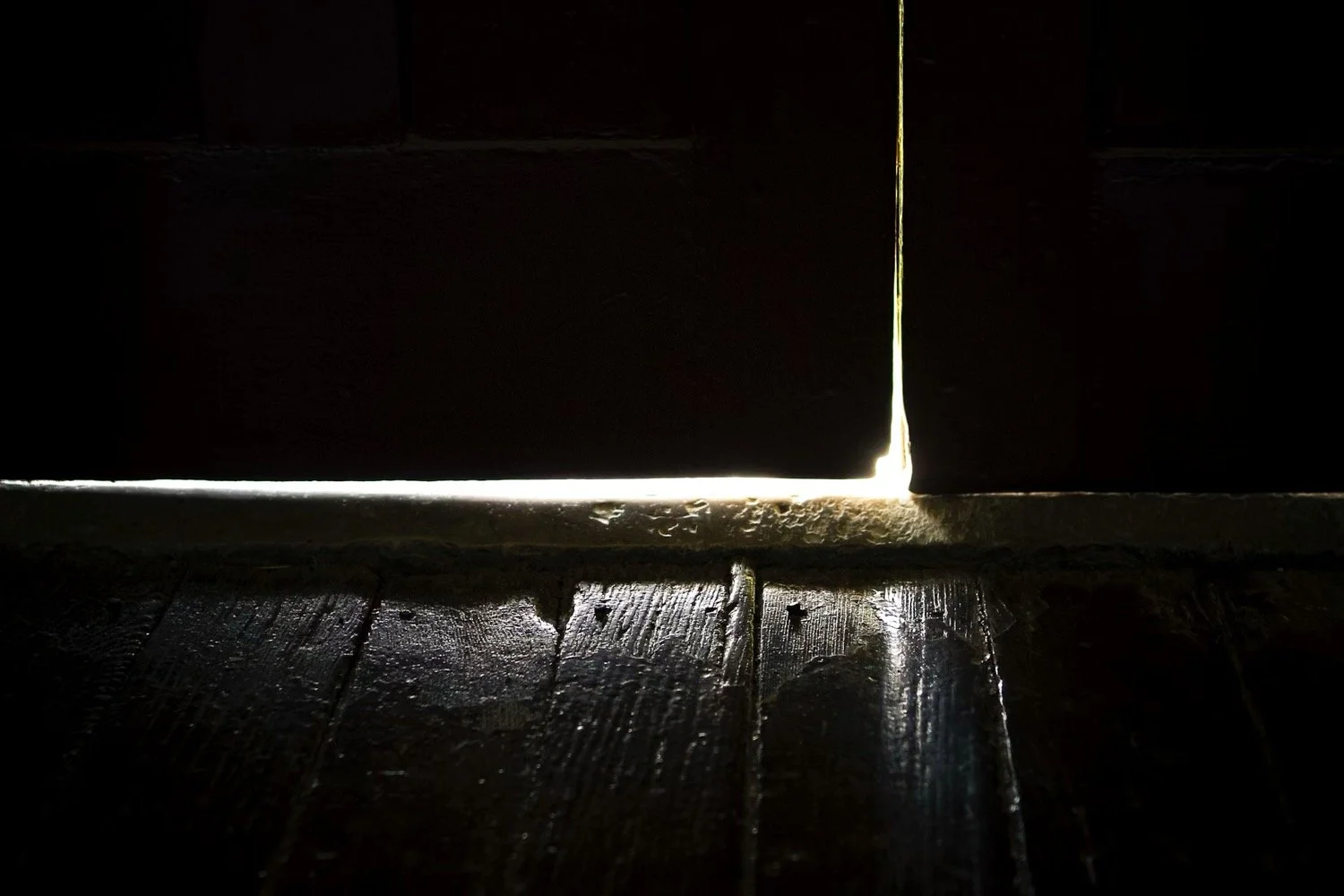Readings for today: James 4-5, Psalms 32
“Is anyone among you suffering? He should pray. Is anyone cheerful? He should sing praises. Is anyone among you sick? He should call for the elders of the church, and they are to pray over him, anointing him with oil in the name of the Lord. The prayer of faith will save the sick person, and the Lord will raise him up; if he has committed sins, he will be forgiven. Therefore, confess your sins to one another and pray for one another, so that you may be healed. The prayer of a righteous person is very powerful in its effect.” (James 5:13-16 CSB)
I’ve been praying about prayer over the last few years. Perhaps it’s because I feel like I’ve fallen into a bit of a rut. Perhaps it’s because some of my normal spiritual disciplines have become routine. Perhaps it’s because I find myself running out of words when I pray or simply repeating the same phrases over and over again. Perhaps it’s because the list of people I pray for is long and I don’t want to rush through their names. Whatever the reason, I’ve been asking the Lord to teach me how to pray on a deeper and more intimate level and He is answering my prayer. Here are just a few of the reflections I’ve written down recently…
“Prayer is colossal work. It is the nakedness of a soul intent before God - heart and mind and will, answering deep unto deep.” (Alexander Whyte) Prayer involves the whole person. Heart, mind, body, and will. It requires each of these facets of a person to intentionally direct themselves towards God. It’s a posture physically, mentally, emotionally, spiritually. This is the secret to true prayer. It is about orientation. I think of my Muslim friends who orient themselves towards Mecca or my Jewish friends who orient themselves towards Jerusalem. As a Christian, I orient myself towards no earthly city. No earthly place where a Temple once stood. No, I orient myself towards a Person. I fix my soul’s gaze on Christ. He is the fount of heaven from which I drink. He is the bread of heaven on which I feast. He is the joy of heaven which fills my heart. He is the strength of heaven which sustains my life. He is the wisdom of heaven which guides me through life’s challenges. He is the comfort of heaven in the midst of my griefs and losses. No matter where I am, He is there to greet me. No matter what condition I find myself in, He is there to receive me with open arms.
Prayer is simply entering into Christ’s presence each morning in the silence and quiet before the noise of the day gets too loud or the demands force me to pick my pace. To stand in that place before Christ with all the confused business of my life and this world spread out at His feet. To try and see things as He see them. To try and see the people as He see them. To seek to understand the situations as Christ understands them. To have compassion. To open my heart to grace. And then to take up the burden once more onto my shoulders, full of confidence that I do not bear the burden alone, and go about my day not really having known what I should pray for but knowing that even as my words fail the Spirit prays for me with groanings too deep for words. This is what it means to pray.
Prayer begins by slowing down long enough to truly see people. To listen long enough to truly hear people. To spend enough quality time so others feel valued and of worth. Prayer is attending to the hearts and souls of others. Hearing the words behind the words. Paying attention to body language and what’s being communicated subconsciously as well as consciously. Prayer is spending your day focused on others and then bringing them before Christ in the quiet of your office at the end of the day. Keeping them in your mind’s eye with all their hopes and dreams, fears and failures, hurts and confusion, anger and frustration, joys and sorrows, loves and desires as you come into Christ’s presence. Holding them out to Him as you speak blessing and grace and peace over them. Christ knows their needs before you speak them. You do not have to give Him a list. You can simply speak their names and the names of their children and any particular burdens you know they carry before Him and trust Christ to meet them right where they are. You can do this not only for the individuals and families you know but also for entire churches and communities and nations. You can hold up the Town of Parker before Christ. The State of Colorado. The United States. You can hold up before Christ the people of Ethiopia and South Sudan and Uganda and Bangladesh and Dominican Republic and North/South Korea and Afghanistan and Bolivia and the many, many other nations you’ve been and where you have friends doing Christ’s work. He is with them in their suffering and heartbreak and He is at work bringing beauty from the brokenness just as He is doing with you.
The challenge of prayer has very little to do with finding the time for it or the space or the quiet or the solitude. It has very little to do with the internal wrestling that ensues when you feel you aren’t being heard or your prayers go seemingly unanswered. It has very little to do with the doubts that creep in when you try to make sense of prayer or evaluate it’s effectiveness or square it with science. No, the real challenge for you is allowing yourself to be stripped naked before Christ. To be strapped in the “prison house of your own life.” To sit long enough for all the stuff you try to hide or stuff down deep inside to bubble to the surface. Prayer keeps you honest. Prayer keeps you real. Prayer reminds you that you cannot run from yourself nor from Jesus.
These are just a few of the thoughts that I’ve had recently and I believe they are leadings from the Holy Spirit. Ways He is answering as I seek to learn more about how to pray. You see, I want to be a man of prayer. I want to pray righteous prayers. Prayers that are powerful and effective for healing and forgiveness and reconciliation. Prayers for peace and wholeness and shalom. Prayers for my family, my church, my country, and my friends around the world. I want to pray bold prayers. God-sized prayers. Prayers of faith that will move mountains, drive out demons, and bring revival. I want to pray in such a way that the devil trembles and the kingdoms of this world shake. I want to pray such prayers not for my own sake but for the sake of the world God loves so much. Lord, teach me to pray!
Readings for tomorrow: 1 Peter 1-2, Psalms 33 (No devotionals on Sundays)




